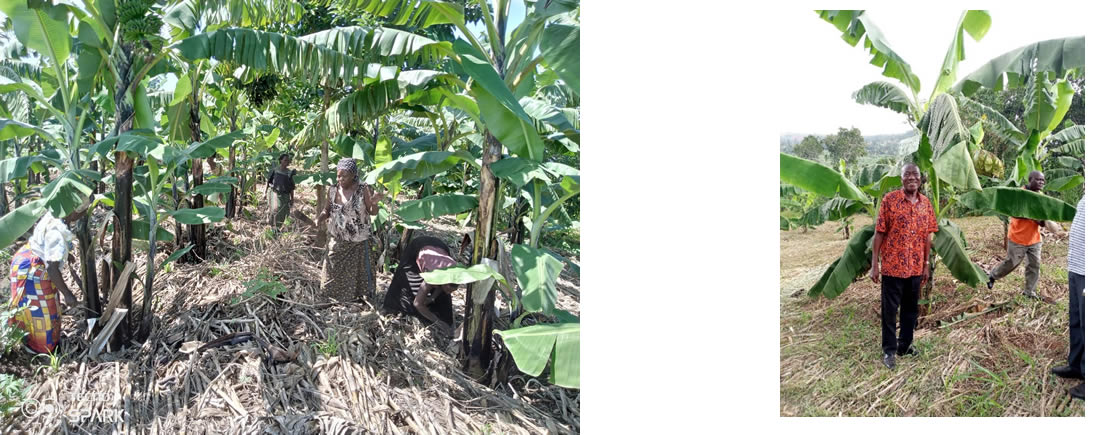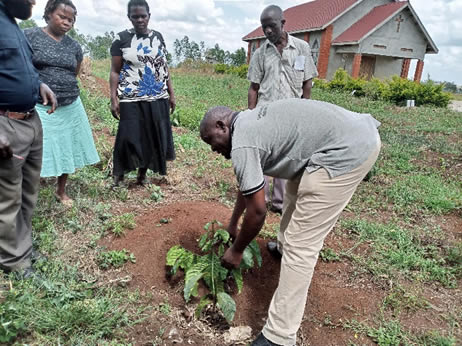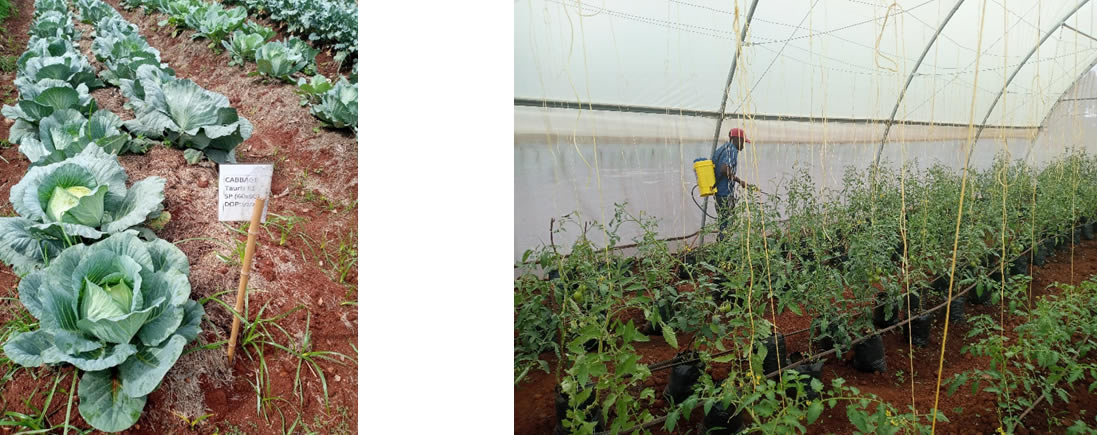


Harnessing the Domino Effect for Informative Technology Promotion and Outreach” NARO-CGS funded project
In most of the developing countries, although agricultural technologies are recognized as one of the drivers for reducing poverty and enhancing agricultural productivity their rate of adoption has remained low. In Uganda, the National Agricultural Research Organisation is mandated to undertake, promote and co-ordinate research in all aspects of crops, fisheries, forestry and livestock, while ensuring dissemination and application of research results. Several technologies and innovations were generated during the Agricultural Technology Agribusiness and Advisory Services (ATAAS) project however; their adoption rate is still insignificant.
It is assumed there is no systematic adoption of technologies by farming communities neighboring the PARIs yet there is no empirical evidence to confirm this hypothesis. MUZARDI in collaboration with four Zonal Agricultural Research and development Institutes (ZARDIs); (Bulindi, Abi, Mbarara, Ngetta) implemented a three (3)-year Competitive Grants Scheme (CGS) project known as “Harnessing the Domino Effect for Informative Technology Promotion and Outreach”.
The project developed novel approach known as “DOMINO effect model” to improve the uptake of research technologies and innovations. Tailored demonstrations were some of the activities proposed by the communities for technology upscaling.
MUZARDI in collaboration with Agro-Genetic Technologies Limited (AGT) set up ten (10) Banana demonstration fields in ten (10) Districts of Bukomansimbi, Kalungu, Butambala, Masaka, Lwengo, Mukono, Buvuma, Wakiso, Mityana and Luwero. The Banana demonstration fields have eight varieties; Kisansa, Mpologoma, Mbwazirume, Nakitembe, muvubo, Kibuzi, Musakala, and Nfuuka. On average, 120 farmers visited the demonstration sites and 20 farmers received suckers for planting.

Banana demonstration fields
On-farm demonstration gardens for coffee in three (3) Districts were established and two (2) gardens were maintained and monitored to support coffee farmers on management practices and learning about the new coffee KR1 - KR7 lines. A total of forty (40) farmers have so far visited the demonstrations and participated in management

MUZARDI Research officer demonstrating how to train coffee plant to farmers
In collaboration with the Israel embassy MUZARDI set up an on-station vegetable demonstration field of about 0.25 acres to ascertain how the varieties of cucumber, tomatoes, cabbage and green pepper from Israel adapt to the Uganda conditions, under irrigated, green house and rain fed water systems.
New Cabbage variety under demonstration New tomatoes variety in the green house at MUZARDI
